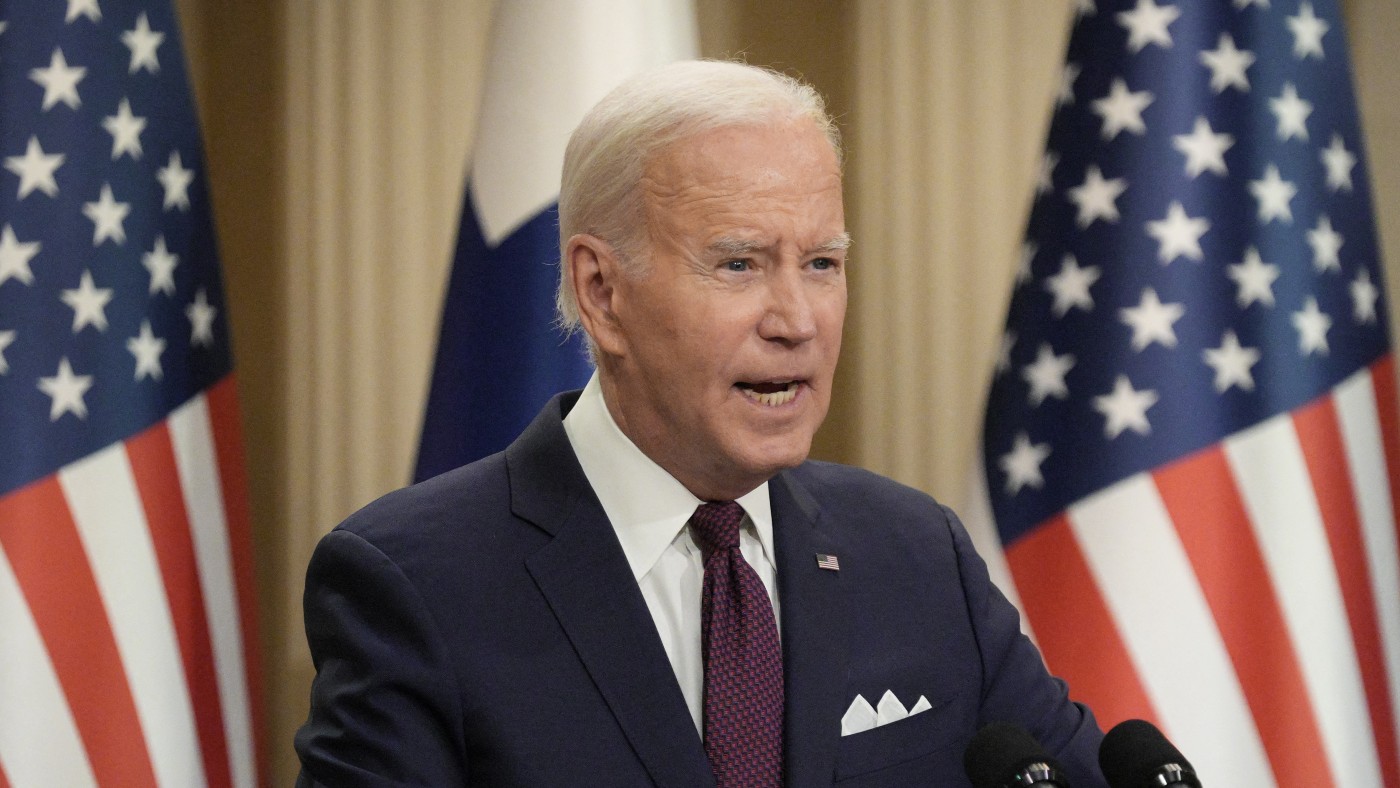Bidenomics: changing the way America does business
The economy has created 13 million jobs, inflation has halved and huge investments have been made in green energy

A free daily email with the biggest news stories of the day – and the best features from TheWeek.com
You are now subscribed
Your newsletter sign-up was successful
“President Biden might not seem like a revolutionary,” said E.J. Dionne Jr in The Washington Post, but he’s presiding over “a fundamental change” in America’s approach to economics.
He’s departing not just from the “trickle-down” policies of Ronald Reagan, but from many of the orthodoxies that shaped the Clinton and Obama presidencies. His approach is rooted in the idea of growing the economy from “the middle out and the bottom up”, and embracing the role of the state. Free-trade deals are no longer a priority; now it’s about boosting US industries, bringing jobs back from abroad, investing in infrastructure and making the economy work for ordinary people.
‘Cherry-picked statistics’
Biden’s ideas are being taken up by others, including Britain’s Labour Party. And no wonder, given America’s recent record, said Jennifer Rubin in the same paper. The economy has created 13 million jobs; inflation has halved; huge investments have been made in green energy. Expect to hear a lot more about “Bidenomics” in the months ahead.
The Week
Escape your echo chamber. Get the facts behind the news, plus analysis from multiple perspectives.

Sign up for The Week's Free Newsletters
From our morning news briefing to a weekly Good News Newsletter, get the best of The Week delivered directly to your inbox.
From our morning news briefing to a weekly Good News Newsletter, get the best of The Week delivered directly to your inbox.
Don’t believe the “cherry-picked statistics”, said The Washington Times. Biden has presided over no economic miracle. The job figures turned around under Donald Trump, who, in the wake of Covid, “oversaw the recovery of 16.6 million jobs”. The US has only created around two million new jobs since the pandemic.
‘Will it save him again?’
As for inflation, said the New York Post, it may have halved from its peak, but at about 4% it’s still twice what it was when Biden took over. Meanwhile, average mortgage rates have gone from 2.8% to 6.7%, and income inequality is rising for the first time since 2011. Bidenomics amounts to “tossing trillions at Democratic special interests”. Biden’s team must be desperate if they’re making this his central re-election theme.
A lot needs to “go right for the public to judge Bidenomics a success”, said Matthew Continetti in The Washington Free Beacon. Inflation will have to fall to 2% so that real wages start rising faster than prices. Biden must also hope that looming interest rate hikes don’t tip the US into a recession. But his re-election hopes rest on more than just the economy. Whether he wins next year will ultimately depend less on his agenda than on the anti-Trump coalition of voters that cost the Republicans elections in 2017, 2018, 2020 and 2022. Biden has been saved by this coalition before. “Will it save him again?”
A free daily email with the biggest news stories of the day – and the best features from TheWeek.com
-
 What are the best investments for beginners?
What are the best investments for beginners?The Explainer Stocks and ETFs and bonds, oh my
-
 What to know before filing your own taxes for the first time
What to know before filing your own taxes for the first timethe explainer Tackle this financial milestone with confidence
-
 The biggest box office flops of the 21st century
The biggest box office flops of the 21st centuryin depth Unnecessary remakes and turgid, expensive CGI-fests highlight this list of these most notorious box-office losers
-
 Democrats push for ICE accountability
Democrats push for ICE accountabilityFeature U.S. citizens shot and violently detained by immigration agents testify at Capitol Hill hearing
-
 Fulton County: A dress rehearsal for election theft?
Fulton County: A dress rehearsal for election theft?Feature Director of National Intelligence Tulsi Gabbard is Trump's de facto ‘voter fraud’ czar
-
 ‘Melania’: A film about nothing
‘Melania’: A film about nothingFeature Not telling all
-
 Greenland: The lasting damage of Trump’s tantrum
Greenland: The lasting damage of Trump’s tantrumFeature His desire for Greenland has seemingly faded away
-
 Minneapolis: The power of a boy’s photo
Minneapolis: The power of a boy’s photoFeature An image of Liam Conejo Ramos being detained lit up social media
-
 The price of forgiveness
The price of forgivenessFeature Trump’s unprecedented use of pardons has turned clemency into a big business.
-
 Reforming the House of Lords
Reforming the House of LordsThe Explainer Keir Starmer’s government regards reform of the House of Lords as ‘long overdue and essential’
-
 The ‘mad king’: has Trump finally lost it?
The ‘mad king’: has Trump finally lost it?Talking Point Rambling speeches, wind turbine obsession, and an ‘unhinged’ letter to Norway’s prime minister have caused concern whether the rest of his term is ‘sustainable’